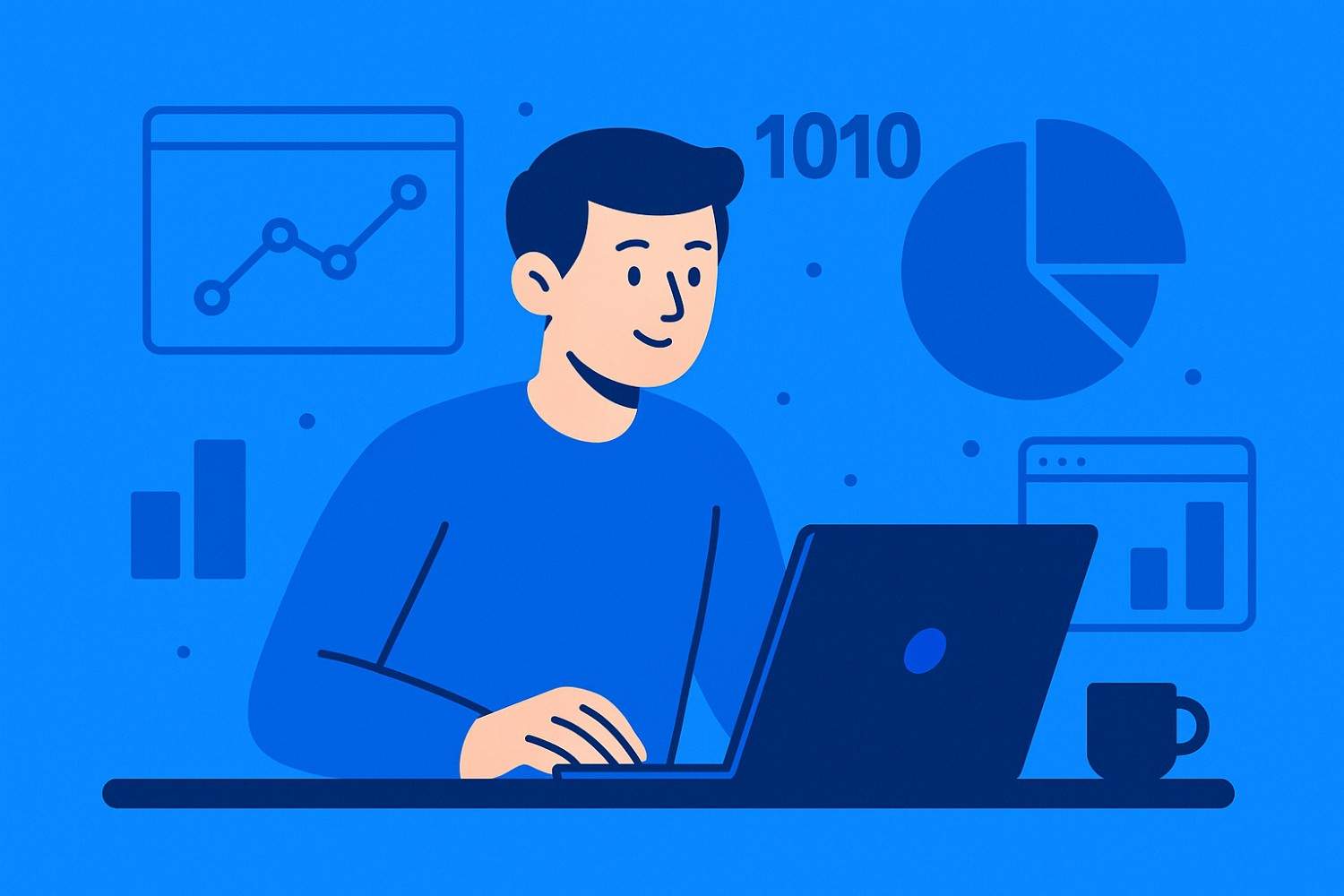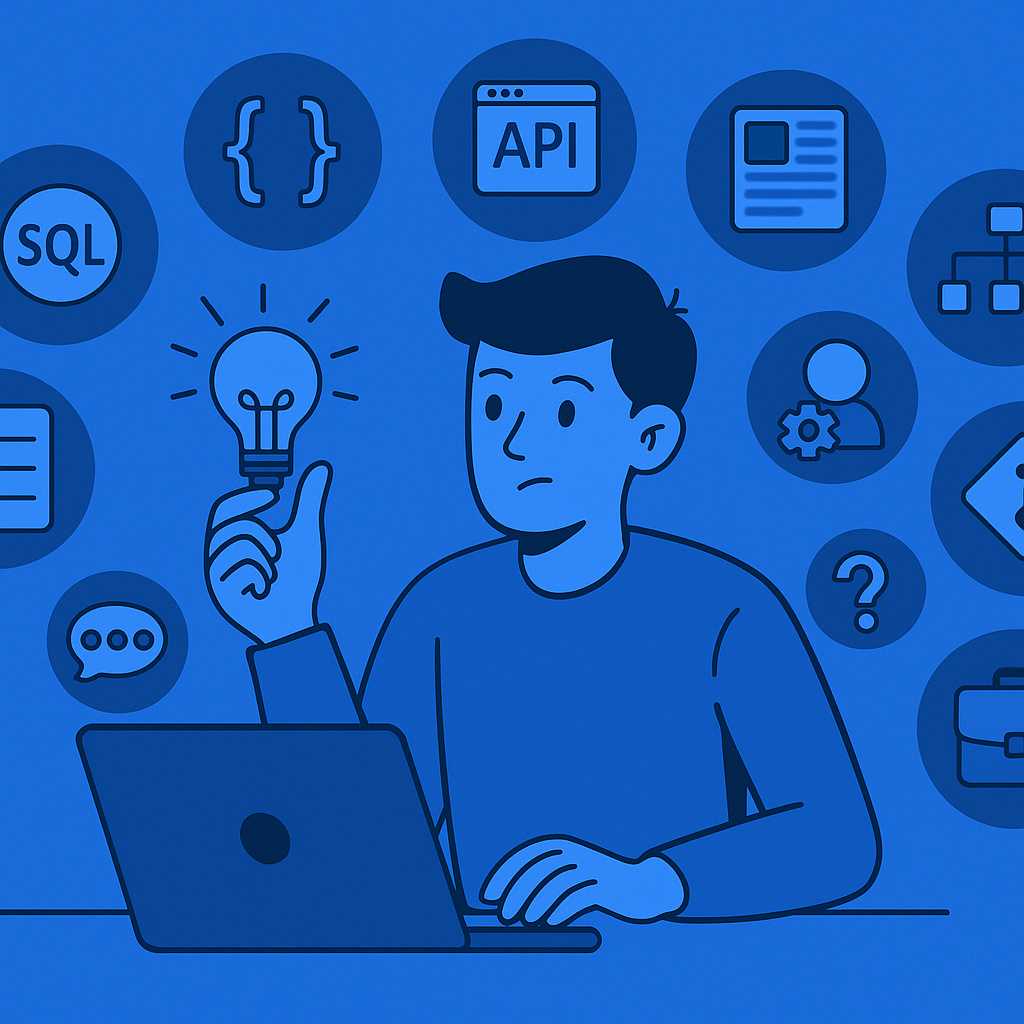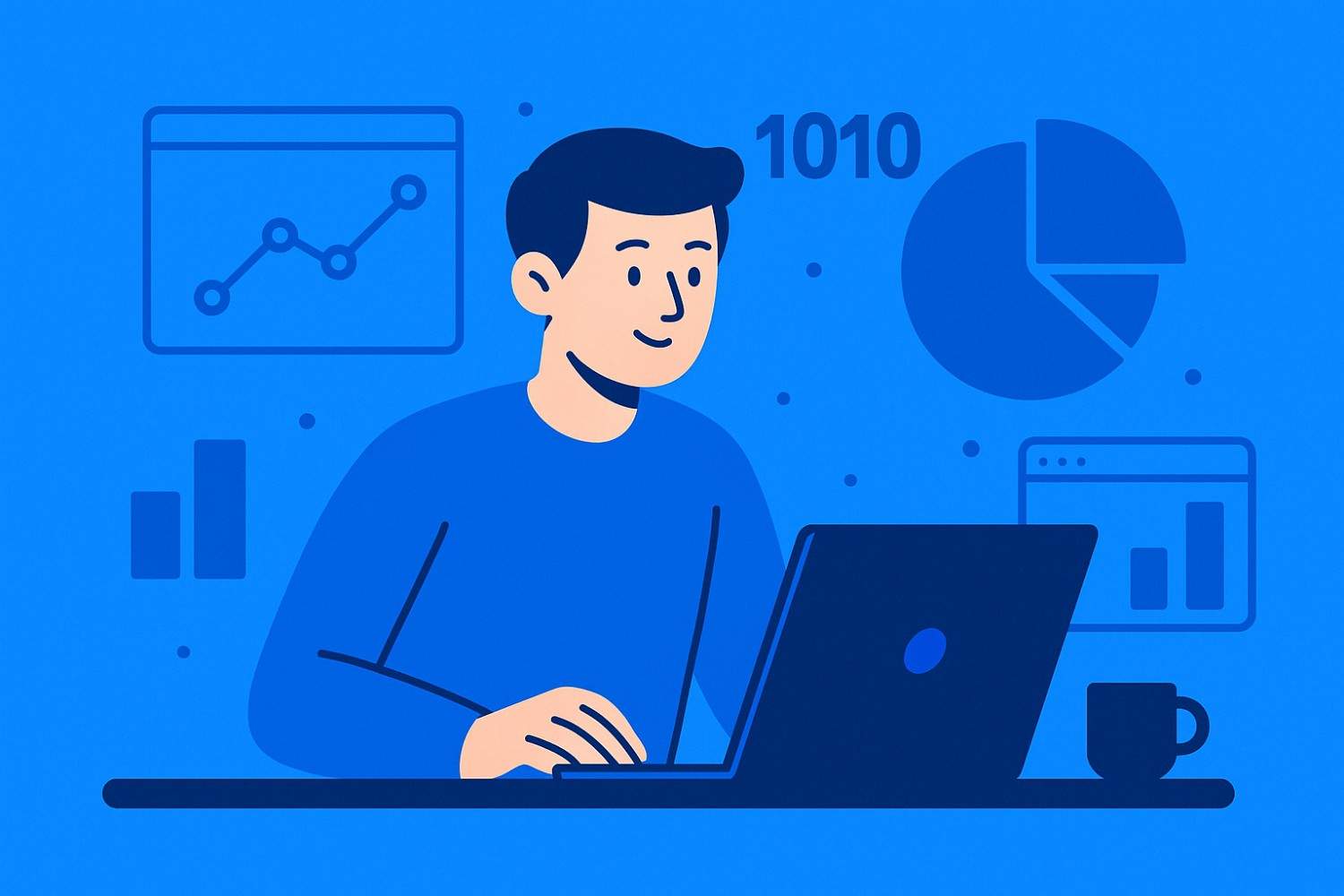Top Fresher Jobs in Data Science How to Get Started

Discover the top fresher jobs in tech for 2025. Explore emerging roles, in-demand skills, and how to land...

Learn about the top fresher jobs, skills required, and practical steps to land your first role.

Breaking into the fresher job market? Here's your complete guide to current hiring trends, sectors with high demand,...

Learn how to negotiate your first salary as a fresh graduate. Get tips on timing, confidence, research, and...

Learn how to succeed in job interviews as a fresh graduate. Includes common questions, preparation tips, and...

Learn how freshers can use LinkedIn to find their first job. Optimize your profile, build connections, and apply confidently.

Explore entry-level renewable energy jobs and green careers for freshers in India. Learn how to start a career in...

Download easy-to-edit resume templates for freshers. Learn how to customize your resume to apply for jobs, even with...

Explore the top healthcare jobs for freshers in medical technology, clinical support, and diagnostics. Learn how to...

Explore entry-level finance jobs for freshers, from analyst roles to banking. Learn the skills required, where to...

Learn how freshers can start a career in e-commerce. Explore entry-level roles, required skills, and growth paths in...

Discover practical job search strategies for freshers. Learn how to write better resumes, use job platforms, and...

Discover the best marketing jobs for freshers, how to get started with no experience, and what roles offer real...

Discover the top technical and soft skills every tech fresher should have to land their first job in the IT industry.

The Indian rupee dipped to 85.70/USD as investors await U.S. jobs data and a looming trade deal deadline, yet...

Ask these key self-reflection questions to define your goals, boost confidence, and land your dream job across any...

Learn how freshers can build a strong professional network from zero. Discover networking events, online platforms,...

Discover the top 10 in-demand fresher jobs for 2025. Find high-paying entry-level career opportunities with growth...

Step-by-step fresher resume writing guide with proven formats and examples. Build a professional CV that stands out...

Complete job hunt guide for freshers. Learn resume writing, interview tips, networking strategies, and job search...

Top fresher interview questions with sample answers and preparation tips. Master your first job interview with...
Resources
-

Set up personalized job alerts to receive notifications about new job openings that match your...
-

Find part-time job opportunities perfect for students, parents, and professionals seeking...
-

Work from home jobs across industries with flexible hours, competitive pay, and real career...
-

Create professional resumes with easy-to-use resume builders. Choose from templates, get...
-

Kickstart your career with internships tailored for students and graduates — explore paid,...
-

Remote jobs have revolutionized how we work, giving professionals the freedom to contribute from...
-

Find the best fresher jobs and entry-level opportunities across IT, Finance, Marketing, and...

Do you love finding stories hidden in numbers? Do you get excited by solving complex puzzles and uncovering patterns in messy datasets? If so, then a career in data science might be the perfect move for you, even if you are just starting out.
Data science is one of the most exciting and fastest-growing fields in the world right now. And here is some good news: you do not need a PhD or years of experience to break in.
This guide will walk you through everything a fresher needs to know. We will cover the best entry-level roles in data science, the essential skills you should focus on learning, and how to build a job-ready profile that gets you noticed by recruiters.
Why Data Science Is a Great Field for Freshers
Many people believe that data science is only for seasoned experts with advanced degrees. But that is a common misconception. Many companies are actively hiring entry-level candidates who can demonstrate a few key qualities.
They are looking for freshers who: - Understand the basics of statistics and probability. - Know how to use common tools like Python or Excel to work with data. - Can visualize data and communicate their findings clearly. - Are naturally curious and eager to learn new things.
Data science is also an incredibly diverse field. You could be working in healthcare to predict patient outcomes, in e-commerce to build recommendation engines, or in finance to detect fraudulent transactions. As long as you understand the fundamentals, you can apply your skills across many different industries.
1. Data Analyst (Entry Level)
This is often the first and most common role that people get when entering the data science field. It is a fantastic starting point for building a solid foundation.
What you will really do: Think of yourself as a detective for the business. You will dive into spreadsheets and databases to analyze business or customer data. Your goal is to figure out why sales went up last month or what customers are complaining about most. You will then create dashboards and reports to present your findings to the team.
The tools you will need to know: - You will live in Excel or Google Sheets for day-to-day analysis. - SQL is your secret weapon for pulling data directly from company databases. - Power BI or Tableau are tools for creating beautiful, interactive dashboards. - Python (specifically libraries like pandas and matplotlib) is used for more advanced analysis.
Who is this role ideal for? This role is a great fit for graduates with a background in statistics, economics, BBA, or computer science.
2. Junior Data Scientist
If you have already learned some Python and have a good grasp of statistics and machine learning, you can aim for a junior data scientist role.
What you will really do: This role is more focused on prediction. You will work with senior data scientists to clean and prepare datasets, build predictive models using machine learning algorithms, and help run experiments to test different hypotheses.
The tools you will need to know: - Python is the primary language, along with Jupyter Notebooks for coding. - You will use libraries like scikit-learn, numpy, and seaborn for modeling and visualization. - GitHub is essential for managing your code and collaborating with the team.
Who is this role ideal for? This is a great fit for graduates who have completed machine learning projects in college or have earned online certifications in data science.
3. Business Intelligence (BI) Analyst
This role is a perfect blend of data analytics and business strategy. It is less about complex modeling and more about using data to answer business questions.
What you will really do: You will be the data expert for different teams within the company. Your job will be to generate reports on sales performance, marketing campaigns, and operational efficiency. You will support these teams by providing them with metrics and dashboards that help them make better decisions.
The tools you will need to know: - SQL is crucial for pulling data from various sources. - Excel is used for quick analysis and reporting. - Power BI or Looker are the primary tools for building insightful dashboards. - You will also need basic data storytelling skills to explain your findings.
Who is this role ideal for? This role is an excellent fit for commerce and MBA freshers who have a strong interest in business and numbers.
4. Data Engineer (Intern or Junior)
If you love the backend side of things and enjoy building the systems that data scientists use, a role as a data engineer could be for you.
What you will really do: You are the architect of the data world. Your job is to set up and maintain the pipelines that allow data to flow from different sources into a central repository. You will be responsible for cleaning this data and storing it in a way that makes it easy for analysts to access.
The tools you will need to know: - Strong skills in SQL and Python are essential. - You will work with big data technologies like Spark or Hadoop, and cloud platforms like AWS or GCP. - You will also need to understand how APIs and data warehouses work.
Who is this role ideal for? This is a great career path for engineering graduates who have strong coding and systems-thinking skills.
5. Machine Learning Intern
This is a great option for those who want to specialize in the most advanced area of data science right from the start.
What you will really do: You will work on building and testing specific machine learning models. This includes tasks like tuning hyperparameters to improve model performance and creating classification or regression pipelines.
The tools you will need to know: - Advanced Python skills are a must, including libraries like scikit-learn, TensorFlow, or Keras. - You will use Jupyter Notebooks, Git, and platforms like Kaggle for your work. - You need a strong understanding of concepts like overfitting, precision-recall, and cross-validation.
Who is this role ideal for? This is best suited for CS, IT, and engineering students who have a strong foundation in mathematics and statistics.
How to Build a Data Science Resume as a Fresher
You do not need formal job experience, but your resume must clearly show your relevant skills and projects.
Here is a simple structure to follow: 1. Header: Include your contact information, along with links to your LinkedIn and GitHub profiles. 2. Profile Summary: Write a concise, 2-3 line summary that highlights your key skills and career goals. > “Data science fresher with strong skills in Python, SQL, and Excel. Have completed projects in classification modeling and dashboard creation. Eager to apply my analytical thinking to solve real-world business problems.” 3. Skills Section: Group your skills by category to make them easy to read. - Programming: Python, SQL, R - Tools: Excel, Tableau, Power BI, Jupyter - Libraries: pandas, numpy, matplotlib, scikit-learn 4. Projects Section: This is the most important section. List 2-3 of your best projects and describe them with clear, result-oriented bullet points. > Project Example: Built a customer churn prediction model with 85% accuracy using logistic regression on a Kaggle dataset.
You can build this resume quickly and professionally using the JobPe Resume Builder.
How to Prepare for Data Science Interviews
Data science interviews will test your technical knowledge, your problem-solving ability, and your communication skills.
You will likely face questions like: - “What is the difference between supervised and unsupervised learning?” - “How would you handle missing values in a dataset?” - “Can you explain a recent data science project you worked on?”
You should also be prepared for technical tasks, such as: - Solving simple SQL query challenges. - Answering Python logic questions. - Discussing a business case, like "What metrics would you track to measure the success of a new feature?"
You can practice for these interviews with the JobPe Interview Questions guide and test your responses in real-time using Mock Interviews.
Where to Apply for Fresher Data Science Jobs
You can use these platforms to find entry-level data science roles: - JobPe Companies - JobPe Auto Apply Tool - LinkedIn (use search terms like “Data Analyst Fresher” and apply relevant filters) - Internshala, AngelList, and the freshers section on Naukri
Your Data Science Journey Starts with a Single Dataset
Your first job in data science does not have to be your dream role at a top company. The most important thing is to get started and begin building real-world experience.
Even if you begin with a basic role that involves working with Excel spreadsheets or a short internship, use that time to learn as much as you can.
Once you break into the industry, a career in data science can open big doors for you, with opportunities across many different sectors and even countries.
Ready to take the first step?
